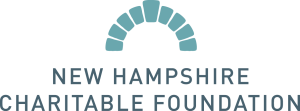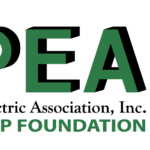When life feels chaotic or your thoughts are racing faster than your feet can move, grounding yourself can be a powerful way to reconnect—with your body, your breath, and the present moment. Whether you’re navigating cancer treatment, recovery, caregiving, or simply the overwhelm of daily life, grounding tools offer a gentle way to come back to center. These practices, shared by Casting for Recovery’s psychosocial team, are practical, accessible, and rooted in compassion.
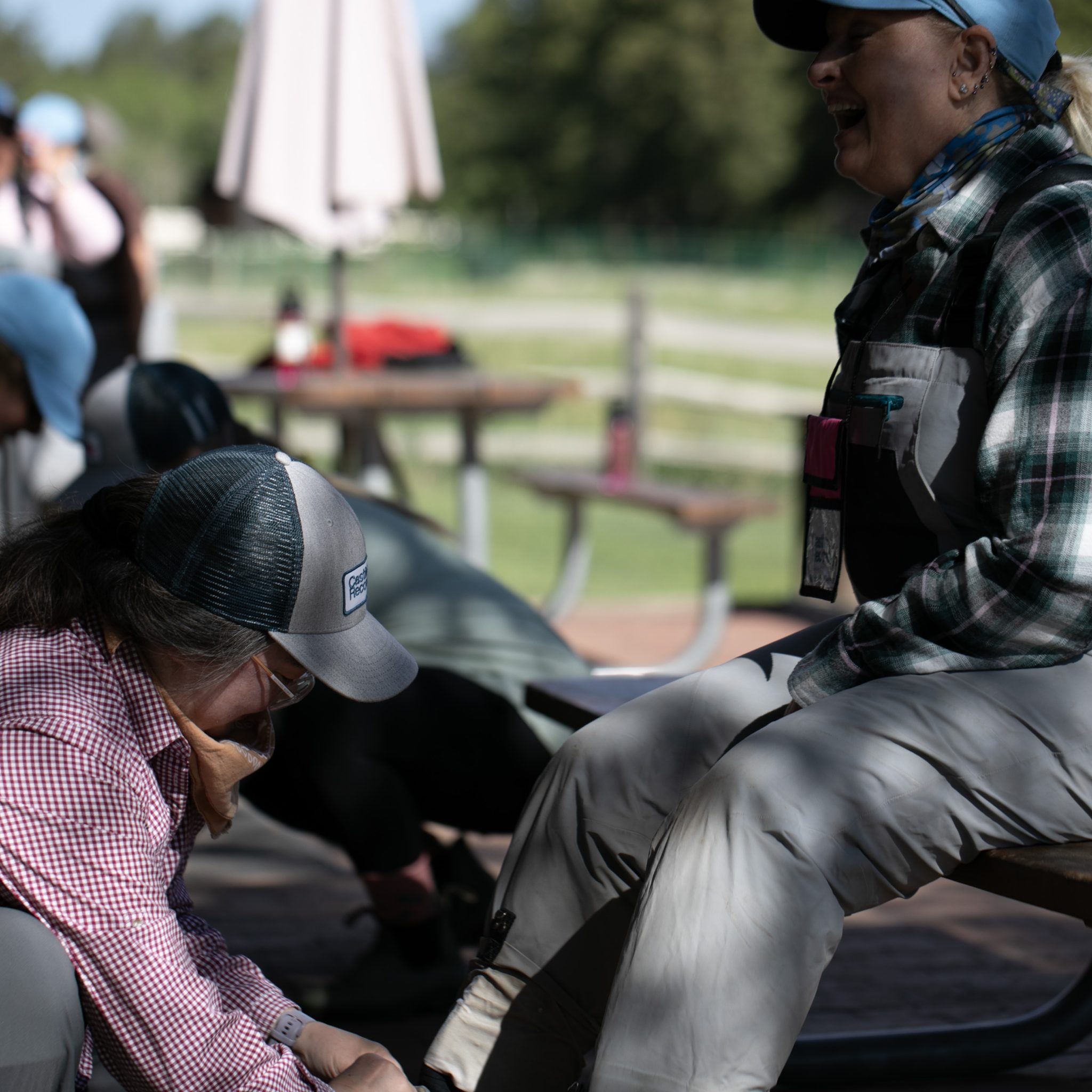
One Small Thing to Feel More Grounded
Sometimes the most effective tools are the simplest. One foundational practice is a body scan. Close your eyes, take a slow breath, and gently guide your attention from your feet to the top of your head. What do you notice? Tension in your shoulders? Tightness in your jaw? Softness in your belly? This check-in enhances body awareness and invites calm.
Another way to reconnect is through sensory mindfulness—looking at something as if seeing it for the very first time. Imagine you’re describing a tree to someone from another planet: the way the bark feels rough under your fingers, how the light filters through the leaves, the exact color of green. Try this with anything nearby—a spoon, a houseplant, your hands. What does it look like? Feel like? Smell like? Approaching your surroundings with fresh curiosity can create surprising moments of stillness.
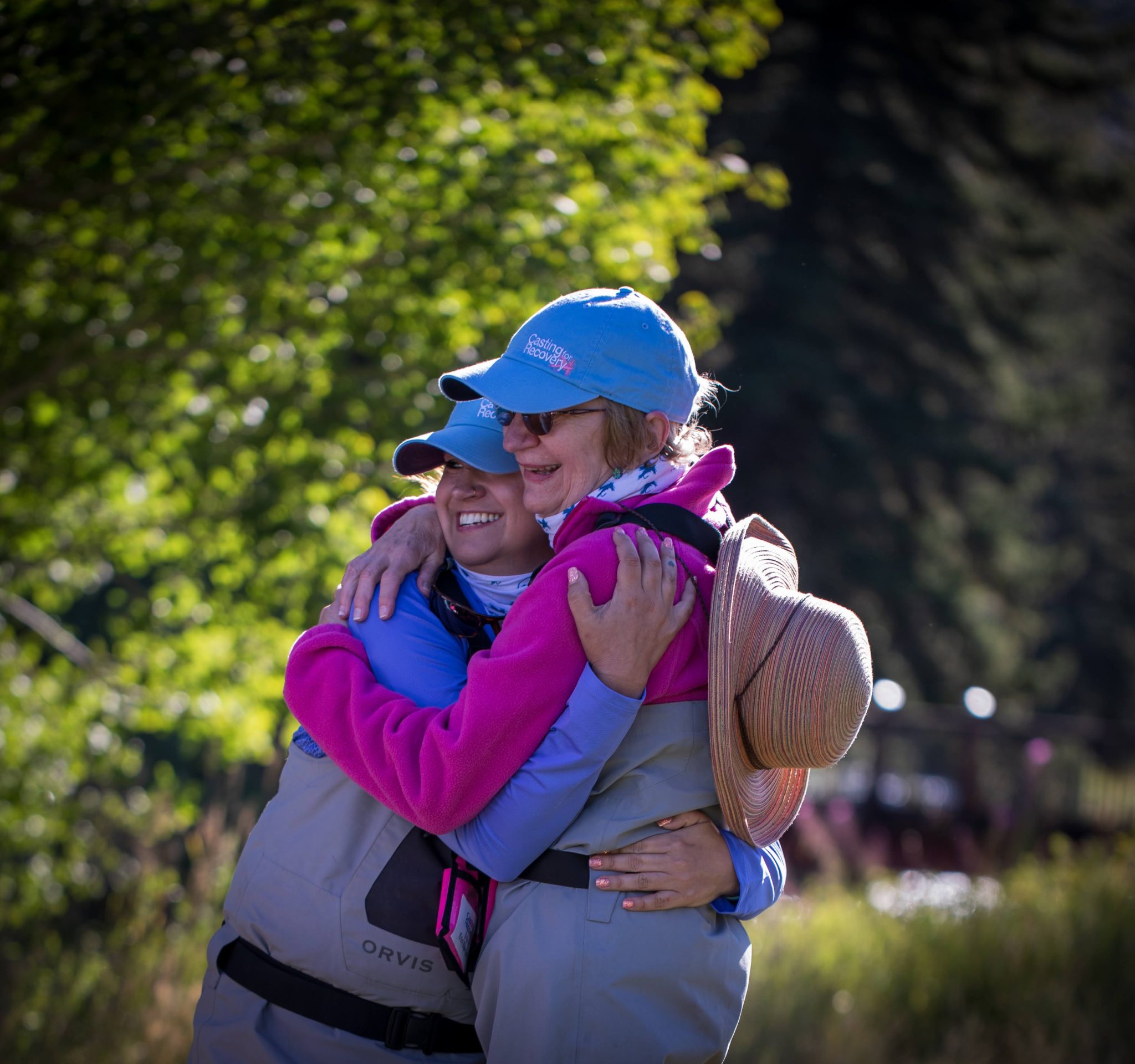
When Anxiety Creeps In
Anxiety has a sneaky way of showing up unannounced. One of the quickest ways to respond is with intentional breathwork. A favorite technique is 4-7-8 breathing:
- Inhale through your nose for 4 seconds
- Hold the breath for 7 seconds
- Exhale slowly through your mouth for 8 seconds
Repeat this for four or five cycles. This slows your heart rate, signals safety to your nervous system, and gently brings you back to the here and now.
Other simple options include box breathing (inhale–hold–exhale–hold, each for 4 seconds) and diaphragmatic breathing, also known as belly breathing, which encourages deeper oxygen flow and helps release tension.

What It Really Means to “Listen to Your Body”
Our bodies are wise messengers. They often sense stress and overwhelm before our thoughts catch up. Listening to your body means paying attention to what it’s trying to say—tight shoulders, a fluttery stomach, shallow breaths, or heaviness in the chest.
Rather than seeing these signals as annoyances, we can view them as gentle nudges toward care. Your body isn’t betraying you—it’s doing its best. The invitation is to respond with kindness. Rest when you’re tired. Move when you’re restless. Breathe when you feel stuck. Tuning into these cues with compassion can help you tend to both your emotional and physical wellbeing.

Quick Ways to Reset When You’re Overwhelmed
There’s no one-size-fits-all reset. For some, it might be listening to music in the car. For others, it’s stepping outside and feeling the wind on your face. What matters is finding something that helps you come back to yourself.
Here are a few quick resets to try:
- Smell a flower or a calming essential oil
- Run your fingers along something textured and soothing (a stone, a soft blanket)
- Watch water move—whether it’s a river, your faucet, or a rain puddle
- Call someone who helps you feel steady
- Look at a photo of someone you love
- Step outside and take three deep breaths
Resetting doesn’t have to be dramatic. Even two minutes can make a difference.
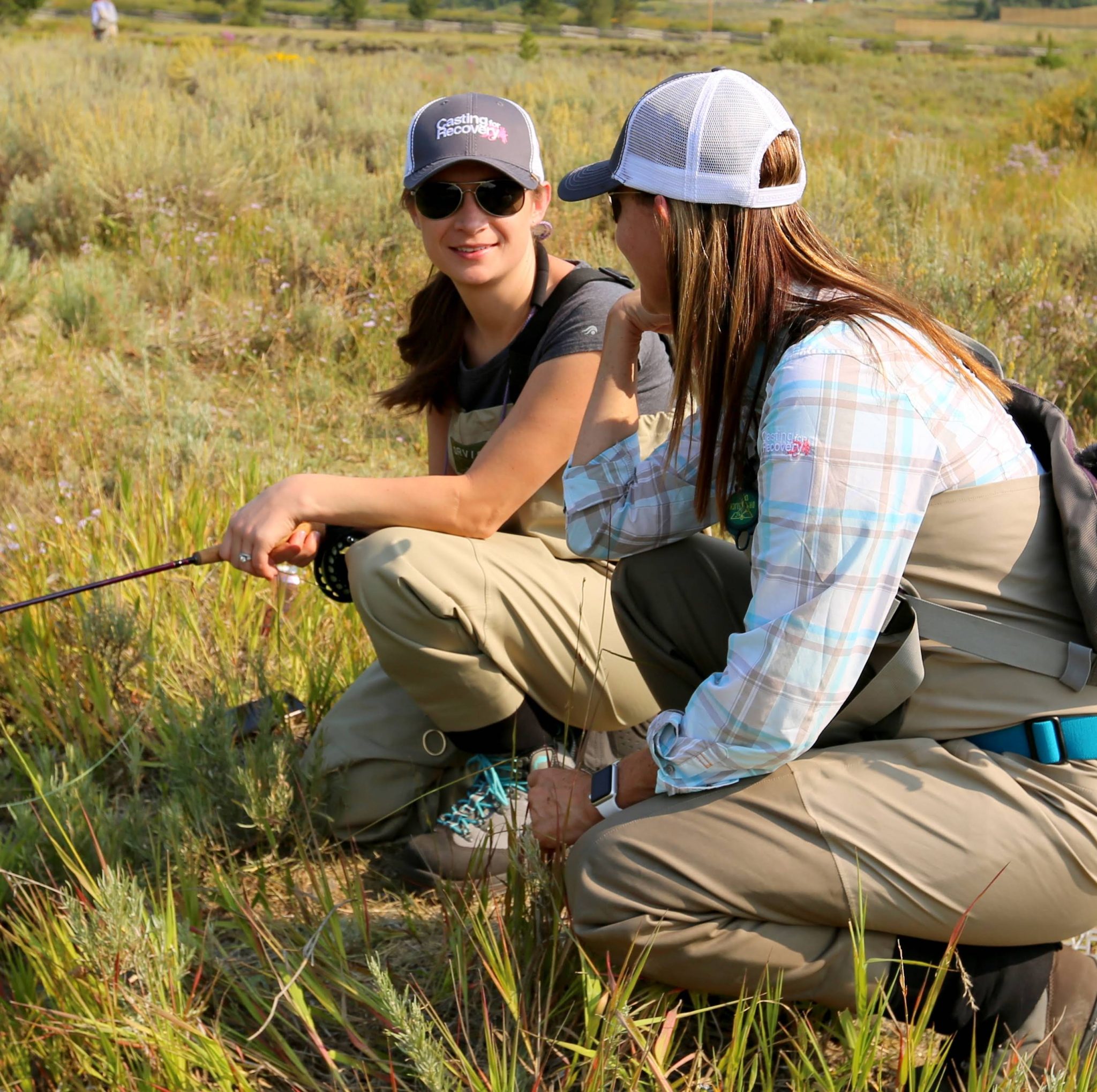
A Beginner-Friendly Breathing Practice
If breathwork feels unfamiliar or overwhelming, start simple: count your breaths. Inhale, exhale—that’s one. See if you can count to ten without your mind wandering. If you lose track, gently start over. No judgment—just practice. This easy exercise builds focus and calm with each cycle.
Looking for something more playful? Try lion’s breath. Inhale deeply, hold for a moment, then exhale with a loud “hah” while sticking out your tongue and making a lion face. It’s almost impossible to do without cracking a smile—which is healing in itself.
A Final Word
You don’t need to wait for a crisis to ground yourself. Like any habit, the more you practice, the more it becomes second nature. These tools are always with you—your breath, your senses, your body. They are quiet reminders that you’re not alone, and that you have everything you need within you to find your center again.

